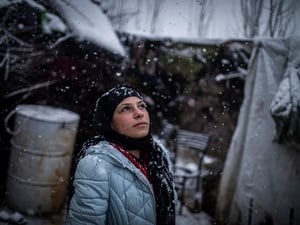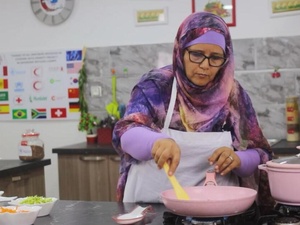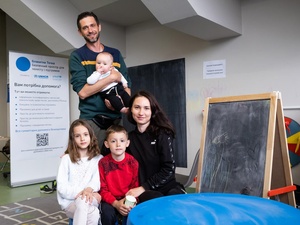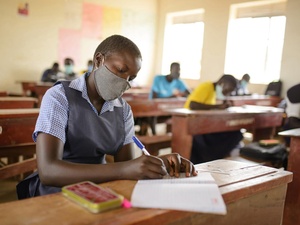As COVID-19 pandemic continues, forcibly displaced children need more support than ever
As COVID-19 pandemic continues, forcibly displaced children need more support than ever
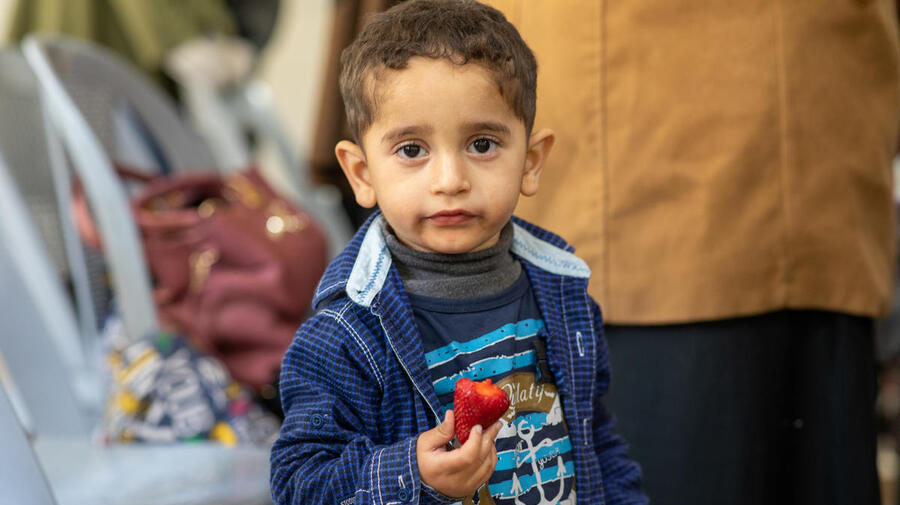
Four-year-old Syrian refugee Mohammad eats a strawberry as his mother takes part in a cooking class at the UNHCR-supported Nuzha community centre in east Amman, Jordan.
GENEVA / NEW YORK – Millions of children around the world have been driven from their homes and across borders by conflict, violence and other forms of harm – including 12.7 million refugees and 1.1 million asylum seekers.
With the rapid spread of the COVID-19 pandemic, the needs of refugee children have become even more acute. Meeting those needs is key to safeguarding both their wellbeing today and future potential.
Displaced children are among those with the most limited access to prevention services, testing, treatment and other essential support. In addition, the pandemic and containment measures are likely to have negative consequences for their safety and education, which were precarious even before the outbreak of the disease.
Going to school was already a daily challenge or impossibility for many displaced children around the world. Less than half of all school-aged refugee children were enrolled, with that dropping to one in four for secondary school. More displaced children are now likely to be out of school for a prolonged period and some might never return.
In some cases, children are also going without meals or clean water because of school closures. There are likely to be increasing rates of neglect, abuse, gender-based violence and child marriage as families experience further socioeconomic hardship. And there is a growing risk of stigmatization and prejudice as the virus spreads across borders and instils fear.
The pandemic risks turning back hard-won gains that had been made in expanding access to protection, healthcare and education for refugee children globally.
We cannot let this happen. At a time when needs for support and attention multiply, the pandemic response must include clear commitments to the protection and wellbeing of forcibly displaced children.
As UNHCR and UNICEF, we are committed to do more — and better — in this crisis and beyond for refugee children, their families and communities, and those who host them.
This commitment aligns with our new initiative – the Blueprint for joint action – launched by our two organizations in January 2020 to expand refugee children’s access to protection, education, water and sanitation services in a first group of priority countries.”
We have pledged to work together to transform the quality of life for refugee children and their families by doubling the number of refugee and returnee children with access to education; ensuring that they can access clean, sustainable and environmentally sound water and sanitation services; addressing protection concerns and ensuring quality, child-friendly response services; and identifying barriers to inclusion in national systems.
UNHCR and UNICEF collaborate in more than 40 countries around the world and we are working together to see commitments made for children under the Global Compact for Refugees realized. We will continue to provide the best possible support to all refugee children during the COVID pandemic and beyond, and we urge governments and the international community to join us in these efforts.
Like all children globally, refugee children deserve a fair chance in life, and to see their rights fully realized. Though their lives have been disrupted by violence, displacement and now a pandemic, their chances for a dignified future will be bolstered if they have equitable access to the support and services they need.
Media contacts
UNHCR:
- Cécile Pouilly, [email protected], +41 79 108 2625
- Shabia Mantoo, [email protected], +41 79 337 7650
UNICEF:
- Christopher Tidey, [email protected], +1 917 340 3017


